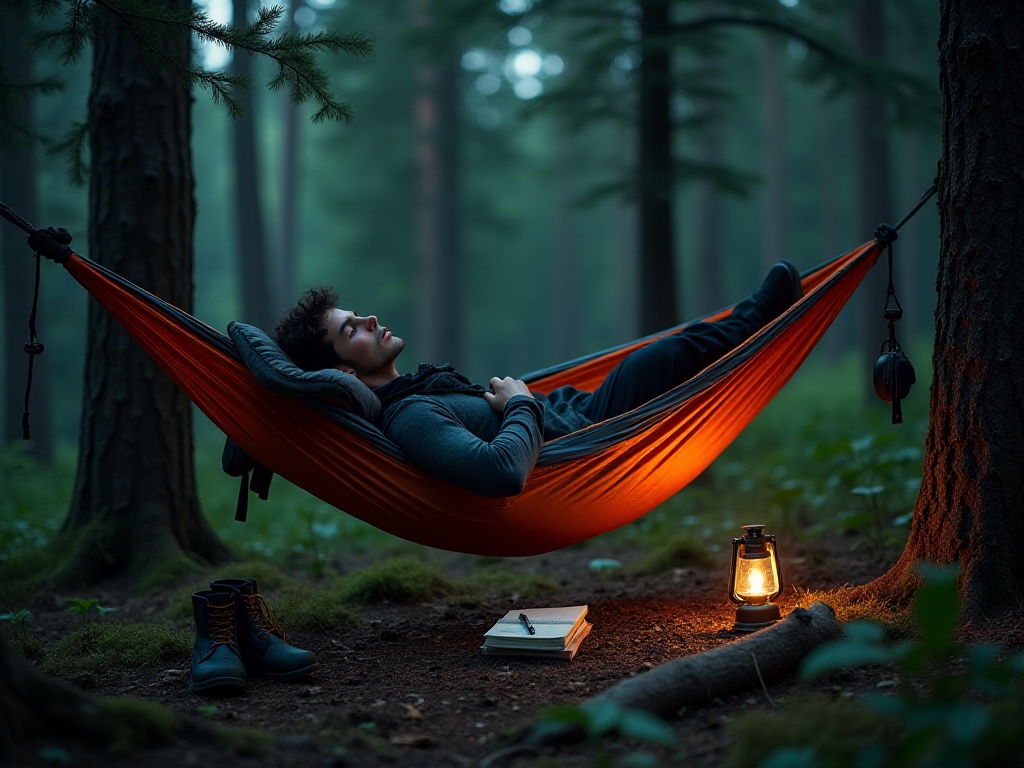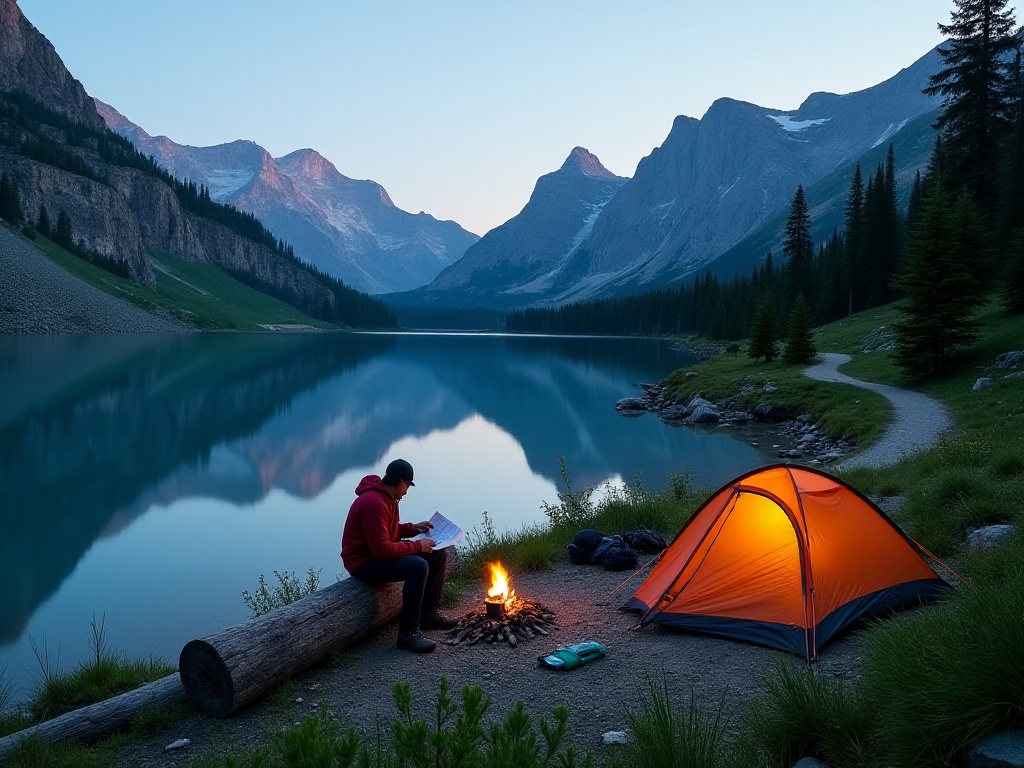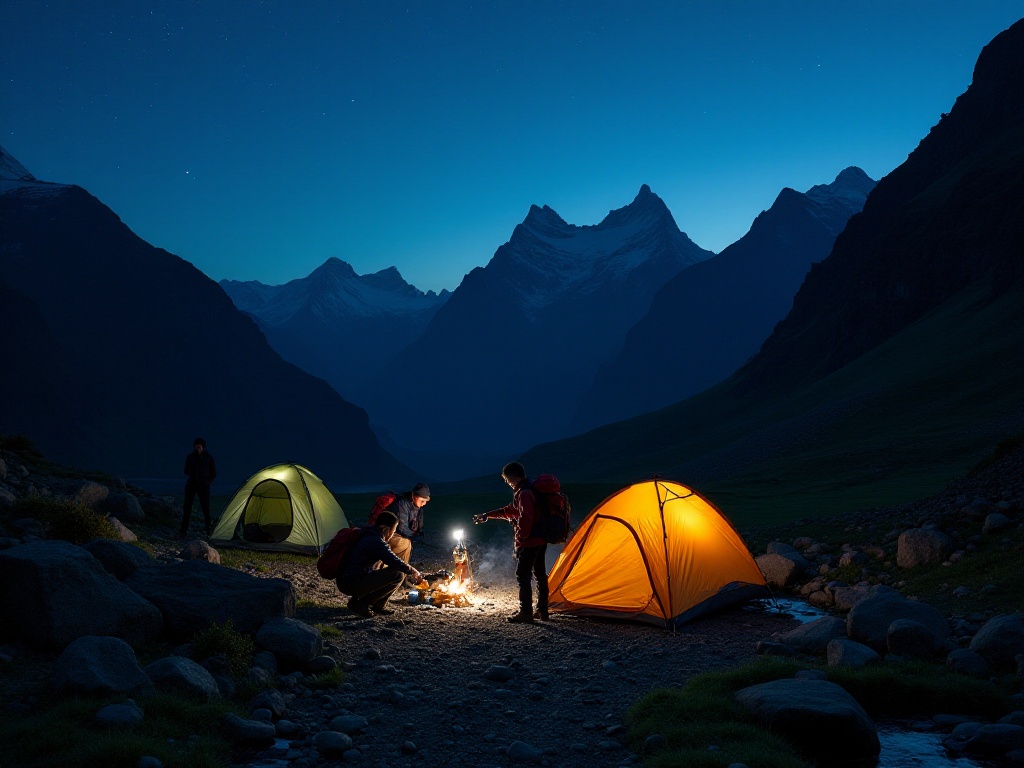Beginning
In the spring of 2023, I made a crazy decision - quit my job and embarked on a 200-day solo backpacking journey across Europe. At that time, I was working as a product manager at an internet company in Beijing, exhausted by endless demands and iterations. The 9-9 work schedule, crowds always looking down at their phones on the subway, endless meetings in office buildings - was this really the life I wanted?
I started questioning my life choices. Three years after graduation, my salary was steadily increasing, but after monthly rent and food expenses, the remaining money seemed only enough to buy unnecessary things on shopping platforms. Weekend gatherings with friends always revolved around work, housing prices, and blind dates. I felt like I was slowly turning into a robot, losing my passion and curiosity for life.
One night while working late, I saw a video in the taxi ride home of a girl hiking in the Swiss Alps. The snow-capped mountains, lakes, forests, and her genuine smile made me suddenly realize: life should have more possibilities. At that moment, I made this decision that would change the trajectory of my life.
Pre-trip Preparation
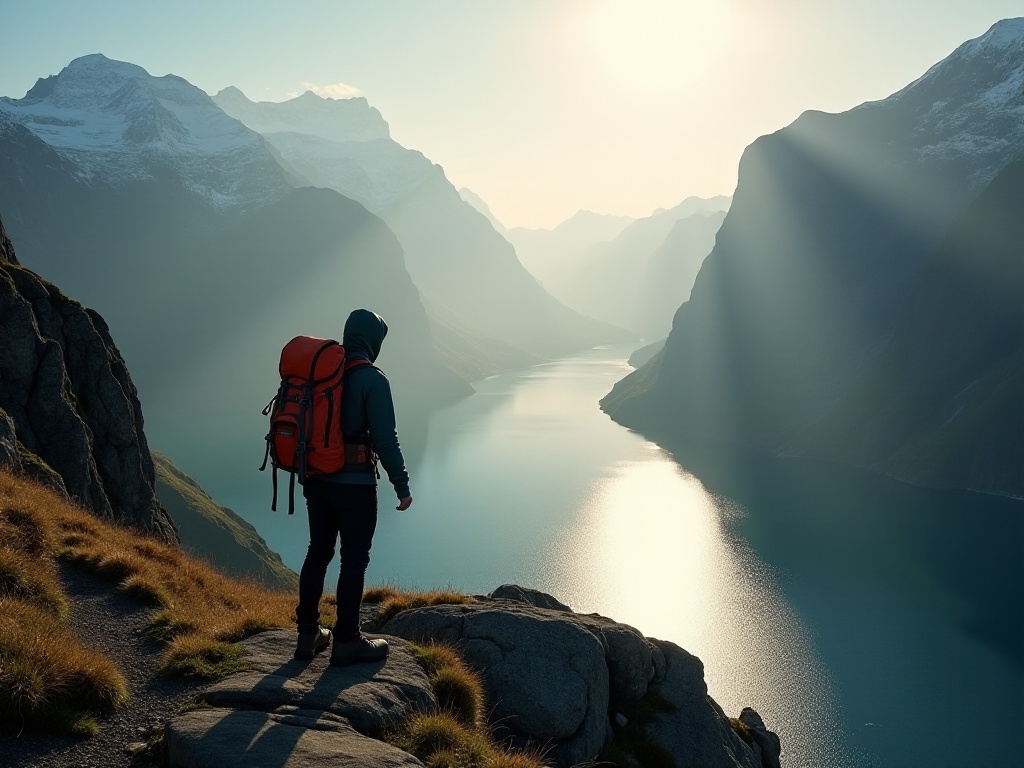
Budget Planning
Planning a budget was the most important first step for living in Europe for 200 days. I spent two full weeks researching various travel bloggers' experiences. In big cities like London, even a hostel bed costs 25-30 euros per night, but in Eastern European countries, similar accommodation might only cost around 10 euros. For transportation, if you book three months in advance, a train ticket from Paris to Berlin might only cost 39 euros, but if bought last minute, it could cost over 200 euros.
I calculated all my savings: money in my salary account, income from selling furniture and electronics on secondhand platforms, and even emptied my Yu'ebao account. I gathered 15,000 euros in total, approximately 120,000 RMB. While this amount isn't small for an average office worker, maintaining a 200-day trip meant my daily budget was only 75 euros.
To keep the budget manageable, I set strict spending rules: always book dorm rooms in hostels, take buses instead of trains when possible, and cook rather than eat out. I specifically got a credit card with no foreign transaction fees and compared prices at different supermarkets in each city. During the preparation phase, I was already learning to be cost-conscious like a backpacker.
Itinerary Planning
While planning routes, I discovered that Europe's transportation system seemed perfectly designed for backpackers. A single Eurail Pass allows you to travel freely across railway networks in 31 countries, and most cities have well-developed public transportation systems. I chose to start from London, not because I was particularly attracted to England, but because it allowed me to follow the most classic route eastward.
My route was like this: starting from London, taking the Eurostar to Paris, then north to Amsterdam and Copenhagen, east to Berlin and Prague, south to Vienna and Budapest, then to Croatia, Montenegro, and Albania in the Balkans, finally reaching Turkey.
I planned to stay 7-14 days in each city. This might sound long, but actually, if you want to truly understand a place, a week isn't much. I wanted to experience local life rather than rushing through like traditional tour groups. During planning, I deliberately left some flexible time, believing that the most beautiful encounters often happen outside of plans.
Travel Experiences
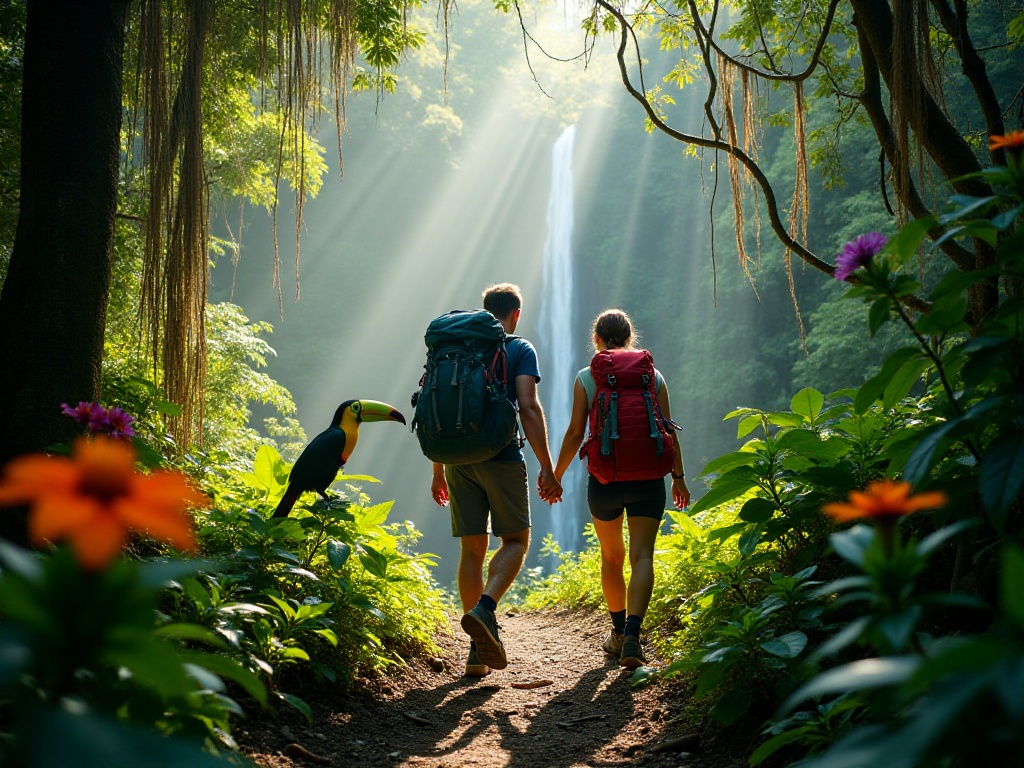
Hostel Life
During these 200 days, I stayed in various hostels. Generator Hostel in London was the most modern hostel I've stayed in, with common areas designed like Starbucks, but costing 30 euros per night. Prague's Mosaic House Design Hostel perfectly demonstrated "affordable luxury," converting a century-old building into a hostel while preserving the original stained glass and ornate ceilings.
The most memorable was a seaside hostel in Split, Croatia. I booked a bed in an eight-person room, with roommates including a surf instructor from Australia, a photographer from France, a dancer from Brazil, and a programmer from Germany. In the evenings, we would drink beer on the balcony watching the sunset and sharing our travel stories. One day, the German programmer told me he had been a digital nomad for three years, supporting himself through freelance projects while living in hostels around the world.
In a Budapest hostel, I met a retired Canadian couple. They rented out their house and traveled the world using rental income and pension. The elderly gentleman said: "When we were young, we always thought we had to wait until retirement to travel, but now we realize it's better to start early while we're still healthy."
Each hostel had its own special activities. Amsterdam hostels organized canal tours, Berlin hostels had free street art walking tours, and Budapest hostels offered thermal bath day trips. Through these activities, I made many like-minded friends, some of whom I still keep in touch with.
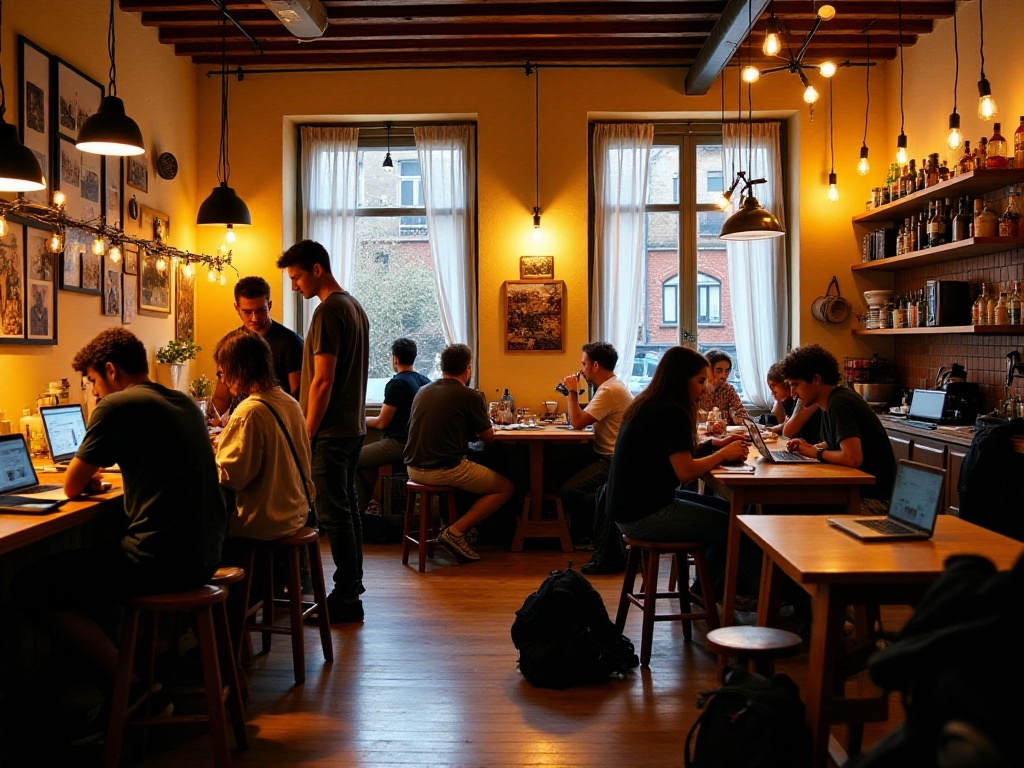
Culture Shock
In Budapest, I met a Hungarian family through the hostel. They invited me to dinner at their home, giving me my first real glimpse into European family life. Their apartment wasn't large but every room was cozy. The dinner table was set with traditional Hungarian stew and wine, with the whole family gathered around discussing various topics.
What impressed me was that their daughter, 25 years old, was still in graduate school and not rushing to find a job. Her parents supported her continued education, believing it was more important than earning money early. When discussing work, they mentioned that Hungarian law limits weekly work hours to 40 and mandates at least 20 days of paid vacation annually. When I told them about young Chinese people often working late, they all looked incredulous.
In Berlin, I attended a Sunday Market organized by locals. It was a flea market held in an abandoned train station, but it was more like a community gathering than just buying and selling. People were playing guitars and singing, selling homemade cakes, and painting on easels. Most amazingly, it was completely cashless, using a "Berlin Time Bank" system where you could exchange one hour of German language teaching for an hour of massage or a dinner.
In Amsterdam, I rented a bicycle to explore the city. The bike lanes here are wider than car lanes, with traffic lights specifically designed for cyclists. More surprisingly, white-collar workers cycle to work in formal attire without worrying about sweat. A local friend told me that in the Netherlands, bicycles aren't exercise equipment but the main mode of transportation. They learn to cycle from childhood and schools even organize cycling tests.
Food Exploration
Despite limited budget, I tried to taste local foods everywhere possible. In Paris, I discovered that corner bakeries are the real food paradise. Every morning, I would buy a freshly baked croissant for just 1.2 euros, but its crispy texture and buttery aroma were more memorable than desserts from Michelin-starred restaurants.
In Florence, Italy, I found a century-old sandwich shop. The owner was an Italian grandfather with a big beard who told me their signature sandwich recipe had been passed down through four generations. The bread was baked that morning, ham sliced to order, topped with special truffle sauce - worth every cent of the 8 euros it cost.
Most surprising was the food in Eastern European countries. In Prague, I fell in love with a dessert called Trdelník, a cylindrical pastry coated with sugar and walnuts, filled with ice cream. In Croatian coastal towns, I often went to fishermen's morning markets for fresh seafood. Just 5 euros would buy a large handful of freshly caught sardines, which I'd take back to the hostel kitchen to simply fry with lemon and olive oil for a delicious dinner.
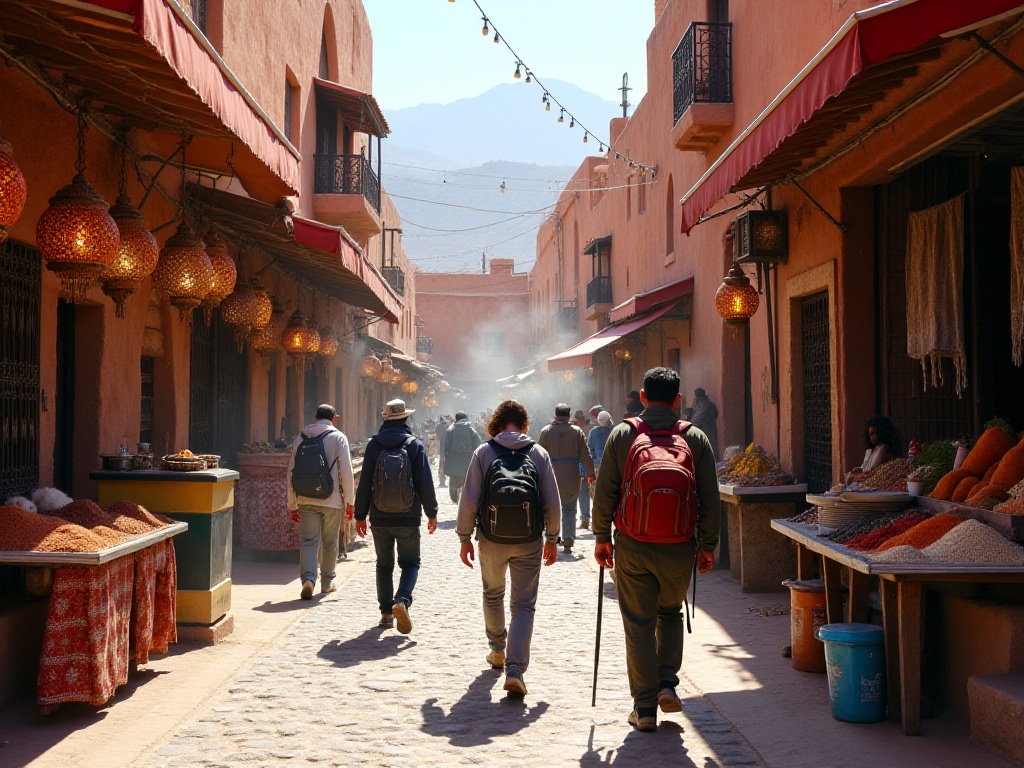
Unexpected Encounters
On a rainy day in Venice, I met an elderly Japanese gentleman in St. Mark's Square. He was a retired architect who came to Venice alone every year to paint watercolors. We sheltered together under a café umbrella, watching him paint the rainy square before us. Despite the language barrier, art created a wonderful resonance between us.
On Charles Bridge in Prague, I met a street musician. He wasn't performing for money, just standing there playing violin. After listening for a long time, I finally gathered courage to ask why he played there. He said, "Music is like travel - it needs no purpose, the journey itself is the most beautiful scenery."
On a small island in Croatia, I met an elderly lady from New Zealand. At 75, she was still backpacking alone. She told me that after her husband passed away, she decided to fulfill their youthful dream of traveling the world. "Life never has a perfect time," she said, "what's important is having the courage to take the first step."
Deep Insights
About Simplicity
This journey completely changed my view of material life. When I left, I carried a 35-liter backpack containing just a few changes of clothes, a laptop, and basic toiletries. Initially I worried about packing too little, but soon discovered that life can be very simple.
In Berlin, I met a Danish couple. They had been traveling the world for three years, supporting themselves through a travel blog. All their possessions fit in two backpacks, yet they were the happiest couple I'd met. "When you really start traveling, you realize we need very little," they said, "experiences and memories are what matter most."
In a Budapest hostel, I met an American girl. She previously worked on Wall Street, lived in a luxury apartment, but always felt empty. After quitting to travel, she found she preferred this lifestyle. "I used to think I needed the newest bags to prove my worth," she said, "now I understand true happiness comes from experiences, not possessions."
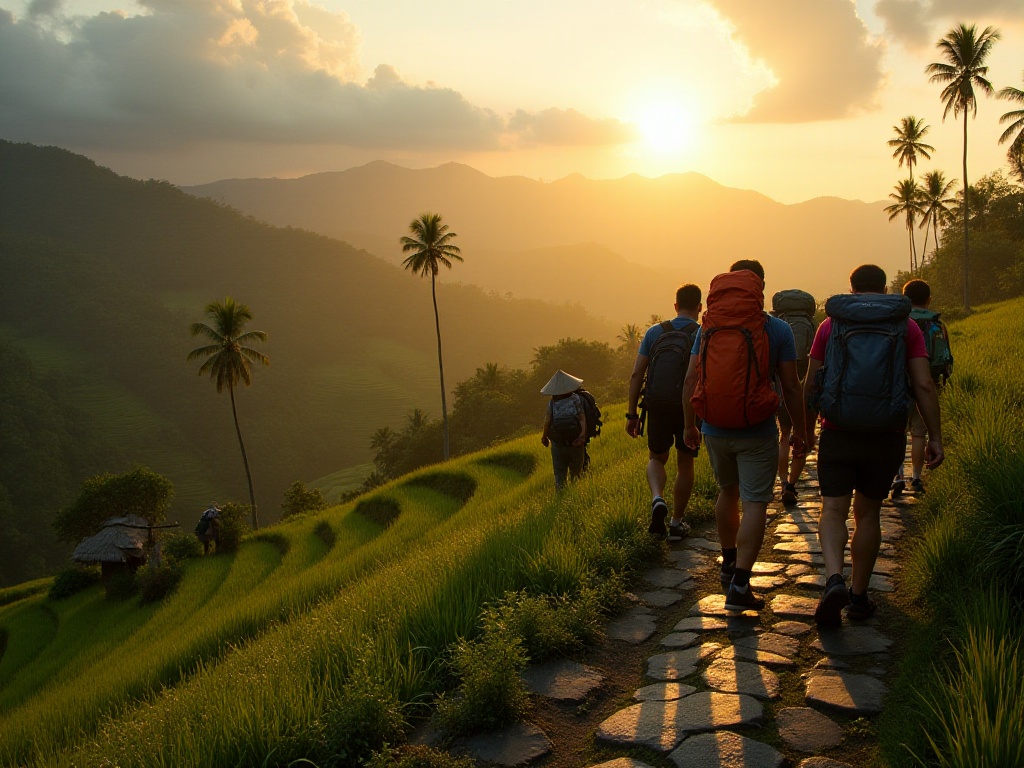
About Courage
The biggest gain from this trip was a new understanding of courage. Courage isn't the absence of fear, but moving forward despite it. I remember my first day in London, facing flight delays and difficulty finding the hostel. I was really scared at that moment, but when I finally solved the problems, I felt unprecedented achievement.
In a hiking group in Croatia, I met a Korean girl. She told me she used to be very introverted, getting nervous even ordering at restaurants. But through solo travel, she learned how to communicate with strangers and survive in unfamiliar environments. "Each difficulty you overcome makes you a little stronger," she said.
About Time
During travel, I gained a new perspective on time. In normal life, we're always bound by deadlines and schedules, making time feel like pressure. But while traveling, time became a luxury. You could spend an entire day reading in a Paris café, wander aimlessly through Venice's alleys, or count stars on a Croatian beach.
By an Amsterdam canal, I met a Dutch university student. He told me Dutch people particularly value work-life balance. "Life isn't a marathon," he said, "you don't need to keep running, sometimes stopping to appreciate the scenery is more important."
Reflections Upon Return
Now, three months after returning to Beijing, those 200 days remain deeply etched in my mind. This journey not only showed me different landscapes but also different possibilities in life.
I learned to embrace different cultures and lifestyles with a more open mind. In Europe, I saw how people balance work and life, cherish time with family and friends, and find equilibrium between urban development and environmental protection. These all gave me great inspiration.
I also understood that travel isn't escape, but a way of growth. Through this journey, I became clearer about what kind of life I want. After returning, I didn't immediately look for a job but started freelancing, allowing me to maintain that sense of freedom and ease from traveling.
Most importantly, this journey taught me that life has no standard answers. Everyone has their own rhythm and choices; what's important is listening to your inner voice. As that elderly New Zealand lady said, life never has a perfect time, what's important is having the courage to take the first step.
So, if you're considering picking up a backpack and setting off, my advice is: don't think too much, just do it. You'll never regret being brave, only not being brave enough. The world is so big, somewhere is waiting for you.


